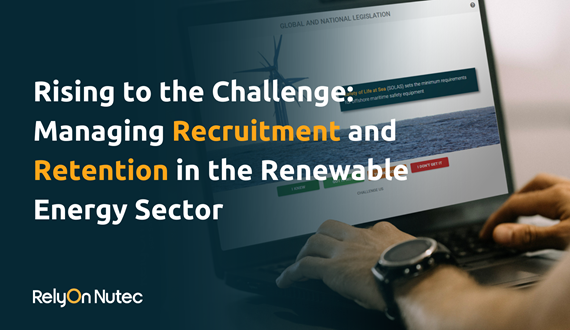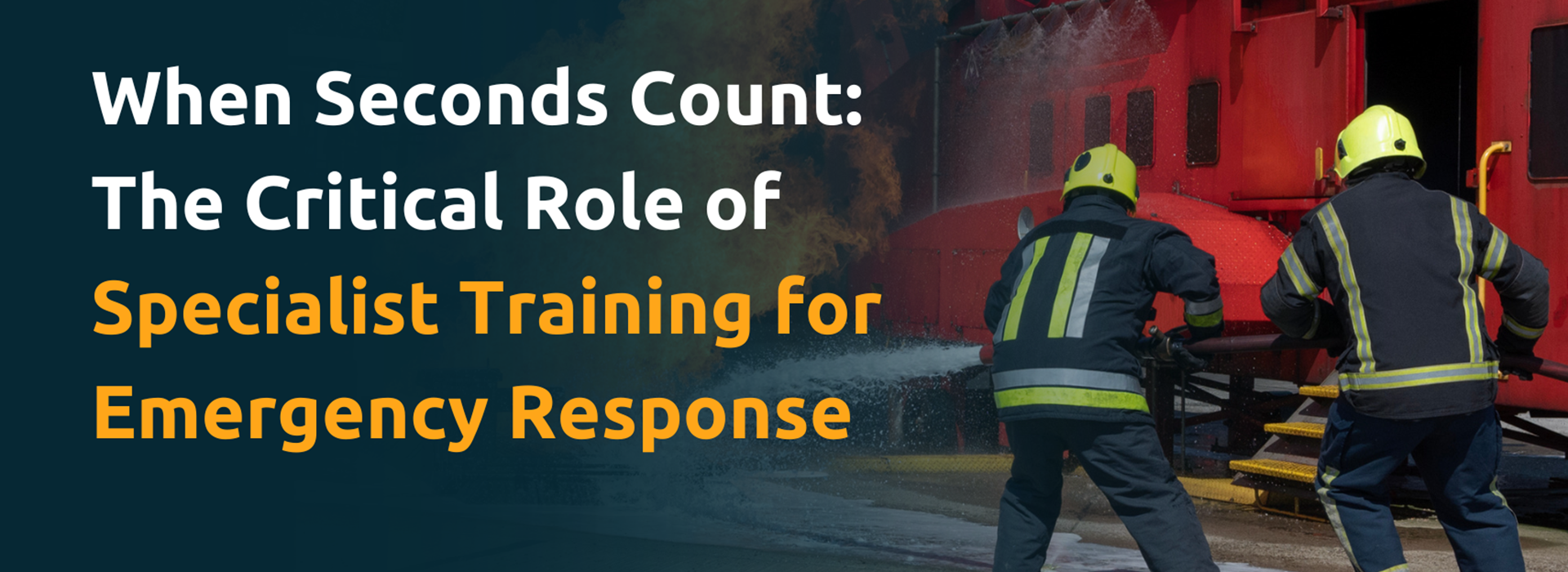Ok
Picture yourself standing on the deck of an oil and gas platform. You can see other platforms in the distance, but otherwise, you’re alone and surrounded by the North Sea. Suddenly, an alarm sounds. You find yourself in a very different circumstance than if you were in an office building in the middle of a busy industrial estate - the stakes are higher, and the consequences could be dire. You find yourself depending on a diverse emergency response team, from roustabouts to engineers, all trained beyond their day-to-day duties.
In this high-risk environment, where every decision can mean the difference between safety and disaster, the importance of specialised training in fire safety, chemical spill management, and helideck operations becomes starkly evident. These are not mere job requirements; they are lifelines, meticulously designed to confront the inherent dangers of offshore life head-on.
The oil and gas sector, recognising the unique hazards of offshore operations, insists on the highest level of safety training. This training, mandated by industry standards and shaped by collective company input, is not just a regulatory requirement - it's a fundamental aspect of operational integrity. Here, training providers play a vital role in not only adhering to these standards but also supporting the fostering of a unified culture of safety across the workforce that permeates every aspect of offshore operations.
Striking the right balance
To be effective, we cannot rely on theory or practical training alone. The science behind combining practical and theoretical training is grounded in the principle that engaging multiple learning modalities enhances memory retention and understanding. Theoretical learning addresses conceptual and cognitive understanding, while practical training reinforces this knowledge through hands-on experience, allowing learners to apply concepts in real-world scenarios. A blended approach bridges the gap between hypothetical knowledge and practical application, making it a highly effective strategy for training in complex fields, like oil and gas.
The use of realistic scenarios in a safe, controlled environment allows learners to apply theory to real-life situations, thereby improving their ability to retain information and develop critical thinking skills, which are vital in an emergency response situation. By utilising real life incidents or scenarios throughout training courses, learners can connect the what with the why, through reality and bring to life the severity of incidents offshore.
Replicating the right environment
In a perfect world, delegates would train in an identical replica of an oil and gas platform, but that’s not realistic. Facilities like those run in partnership by RelyOn Nutec and The Fire Training Group, built on over three acres of land, set the gold standard. The comprehensive simulation environments, which include helideck, chemical spills and confined space scenarios, provide immersive experiences that replicate the complexities of offshore work, allowing the pair to simulate life-like scenarios that can ultimately lead to lives saved in a real incident, while ensuring adequate space to avoid overpopulating the training grounds.
The facility offers a comprehensive range of simulation equipment and environments that replicate real-life scenarios, enabling a highly immersive training experience. Furthermore, FTG and RelyOn ensure that to pass, each learner must be involved in at least one scenario covering all 3 levels of a multi-level structure, casualty recovery and hose management with a charged hose. This ensures that individuals are not only theoretically knowledgeable but also practically proficient in handling complex and hazardous situations typical of offshore operations.
Chemical spill scenarios are a critical and non-negotiable component of the training on offer. The importance of simulating spill scenarios cannot be overstated as it prepares personnel for the complex challenges of containing and mitigating the effects of hazardous substances, but often it is overlooked.
Like simulating firefighting in different areas, such as a galley or a process area, or handling a fire on an overturned aircraft on a helideck, chemical spill training is characterised by its emphasis on realism, providing participants with hands-on experience in identifying, containing, and cleaning up spills. Such simulations are essential for instilling confidence and competence in handling the diverse array of chemicals found offshore.
Upholding the highest standards of training
The oil and gas industry sets a benchmark for safety training that is unparalleled in its depth and breadth, but it should not risk becoming complacent. Incidents and accidents do happen and in the event you’re on an offshore facility, a competent, well trained emergency response team is the difference between going home safely and an incomprehensible disaster.
As the industry evolves, the commitment to maintaining and elevating training standards must remain central. At RelyOn and the Fire Training Group, this dedication to safety and operational excellence is fundamental, ensuring every team member is equipped to navigate the demanding offshore environment confidently.
Next read
-

-

-
 Article 14. June 2024
Article 14. June 2024 -

Ensuring Safety and Efficiency: IRATA Rope Access Training for a Safer Work Environment
In industries such as oil & gas and renewables, where accessing challenging locations is common, rope access methods provide a safe and efficient solution. These methods offer technicians a secure means of navigating heights and restricted areas while minimizing environmental impact. However, proficiency in rope access requires proper training and a globally accepted safety education.
Article 4. June 2024 -

Polaris Sells RelyOn Nutec to Mubadala Capital
The acquisition, part of Mubadala Capital’s flagship Private Equity Fund IV, strengthens the asset manager’s footprint in the business services sector.
Article 24. May 2024 -

RelyOn Nutec Acquires Electrical Training and Consultancy Specialist Quercus Technical Services, Fast-tracking European Electrical Capability Build
Effective May 21st, RelyOn Nutec has acquired Quercus Technical Services BV, one of the largest specialist electrical safety and skills training organizations in the Netherlands. The acquisition of Quercus bolsters RelyOn Nutec’s position in the electrical training market and accelerates its European roll out.
Article 22. May 2024 -

-
 Article 2. May 2024
Article 2. May 2024
